As someone who has researched U.S. college admissions for over three decades, I have often emphasized the importance of Writing Competitions in shaping a strong admissions profile. Among the most prestigious is the John Locke Institute Essay Competition, known for its academic rigor and global recognition.
This year’s (2024) competition introduced an unexpected new element that reflects the changing admissions landscape in the age of AI. Let’s walk through what happened, the seven categories of the competition, the sample questions, and what this means for college applicants today.
What Makes the John Locke Essay Competition Special?
Unlike simpler contests, this competition demands not just strong prose but also serious research, accurate citations, and intellectual depth. Students select one essay prompt from a set of highly challenging questions across seven disciplines: Philosophy, Politics, Economics, History, Law, Psychology, and Theology.
Winning or even being recognized in this competition provides a significant Spike in admissions—a unique strength that makes a student stand out among thousands of applicants.
The Seven Categories and Sample Questions
1. Philosophy
Questions in this category are deeply theoretical, often touching on ethics, morality, and metaphysics.
- What moral obligations do we owe to living persons that we do not owe to future persons? What are the implications of your answer for policy-making?
- Should we treat non-human animals well because they have rights, interests, neither, or both?
- "When civilians are the main target, there's no need to consider the cause. That's terrorism; it's evil." Is this correct?
2. Politics
Here, students grapple with issues of democracy, diversity, and political ethics.
- Should politicians ever be punished for lying?
- Edmund Burke celebrated the wisdom of "unlettered men". In a democracy, do the votes of the unlettered tend to protect a country against the bad ideas of the lettered or do the votes of the lettered tend to protect a country against the bad ideas of the unlettered?
- Diversity is fashionable, but is it valuable?
3. Economics
These questions explore incentives, social mobility, and fairness in institutions.
- What kinds of behaviour are engendered by the hope of profit? Is such behaviour better or worse, on balance, than the behaviour we should expect if all enterprises were owned by charities or governments?
- What will be the effect on socio-economic mobility of the UK government's plan to impose value added tax on school fees?
- Should Oxford lower its admissions standards for the sons and daughters of generous benefactors?
4. History
History prompts ask students to evaluate legacies and ideas that shaped civilization.
- According to Bertrand Russell, "Hitler is an outcome of Rousseau; Roosevelt and Churchill of Locke." To what extent was he correct?
- Should anyone be ashamed of their nation's history? Should anyone be proud of it?
- Which figure in history did most to enlarge human freedom?
5. Law
Students here must wrestle with justice, property rights, and international law.
- What injury should one person be permitted to inflict on another in the defence of private property?
- “Use every man after his desert, and who should ’scape whipping?” Should the law treat offenders better than they deserve?
- Is Vladimir Putin a war criminal?
6. Psychology
These prompts turn inward, examining the human mind and behavior.
- Is objectivity all in the mind?
- Eleanor Roosevelt declared, "No one can make you feel inferior without your consent." Is she right?
- What is self-deceit?
7. Theology
Finally, theology addresses ultimate questions of God, creation, and faith.
- Is atheism implausible?
- Why would the creator of a trillion galaxies become angry if you have sex with your boyfriend or eat bacon for breakfast?
- Why pray?
The New English Test Requirement
This year, on August 14, 2024, shortlisted students received congratulatory emails. Out of an unprecedented 63,328 applicants, about 11,810 students (18.65%) made the shortlist.
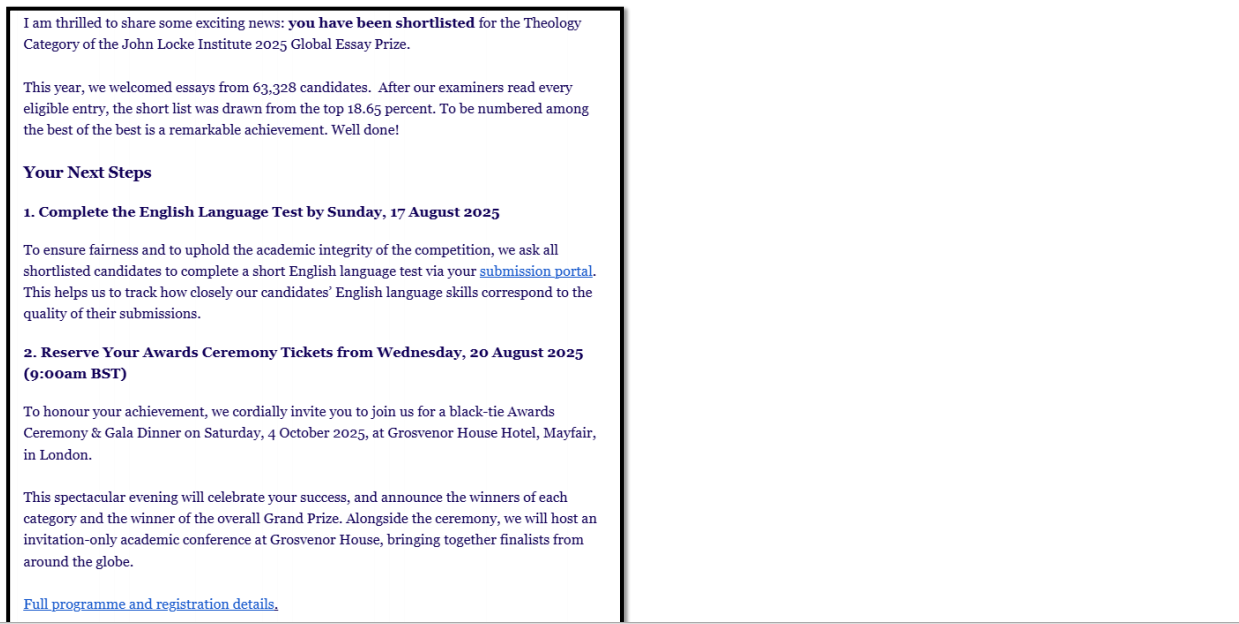
But here was the surprise: for the first time ever, the email included “Your Next Steps”—with a new requirement. Students had to complete an English Language Test between August 14 and August 17.
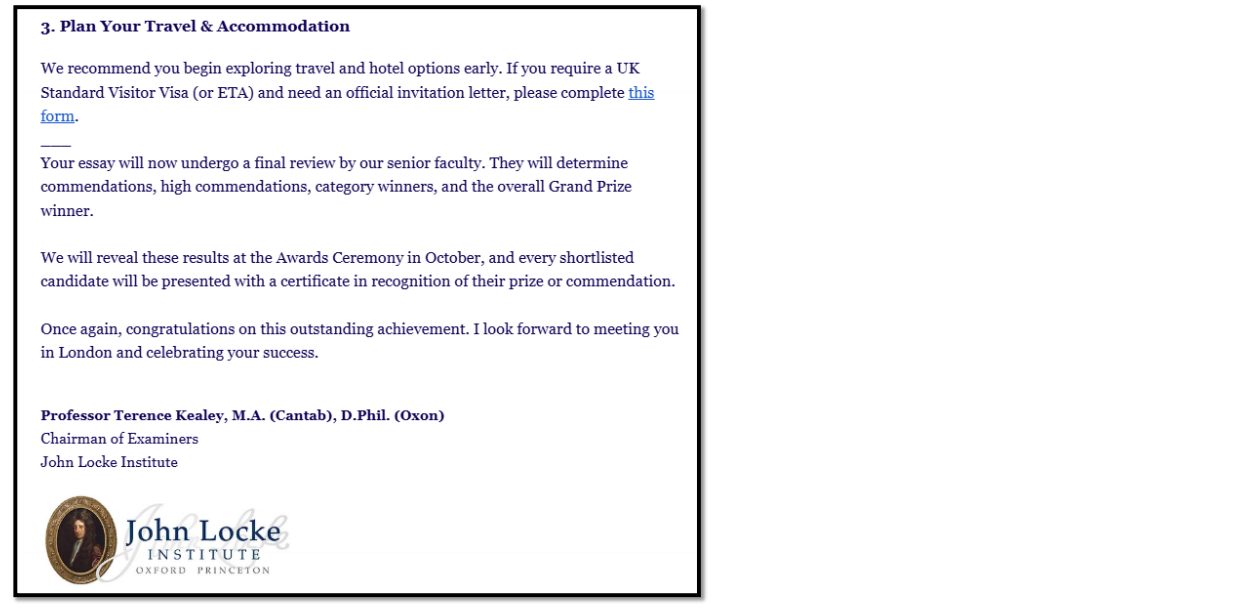
- Format: 10 short questions, each with a 30-second limit, completed in under 5 minutes.
- Purpose: To ensure essays reflected the student’s own ability and not AI or ghostwriting.
- Consequence: If a student’s test results significantly deviated from the quality of their submitted essay, they could be disqualified.
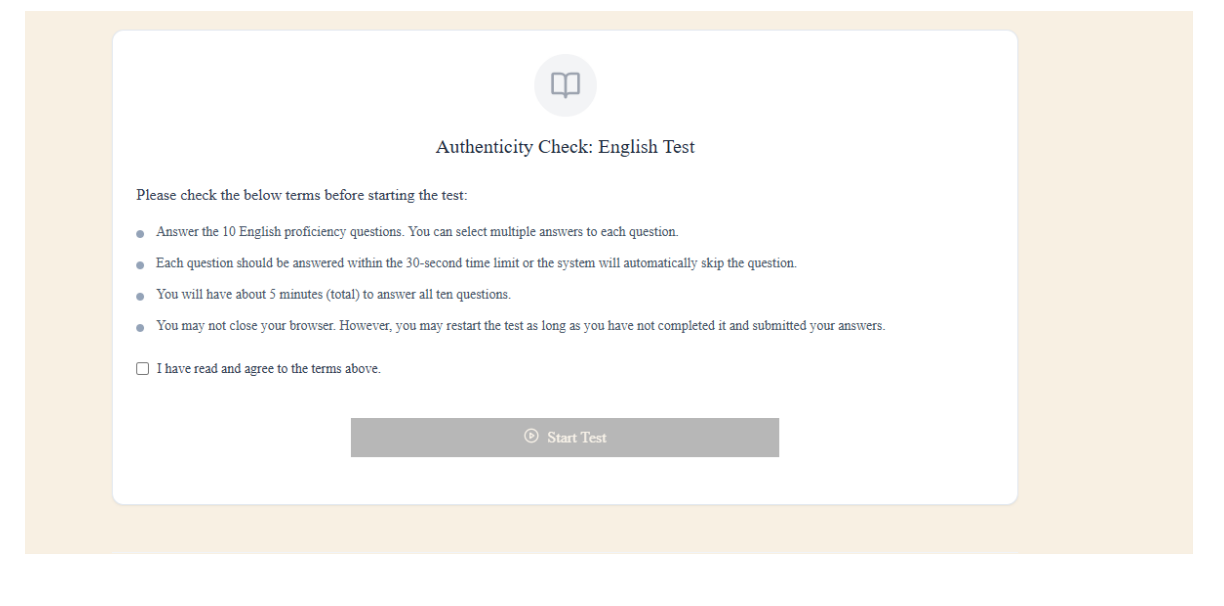
Only those who passed were invited to the U.K. ceremony, where Commendations, High Commendations, category winners, and the Grand Prize Winner were announced.
This shows how even prestigious competitions are adapting to the AI era of writing.
AI and Shifting Admissions Trends
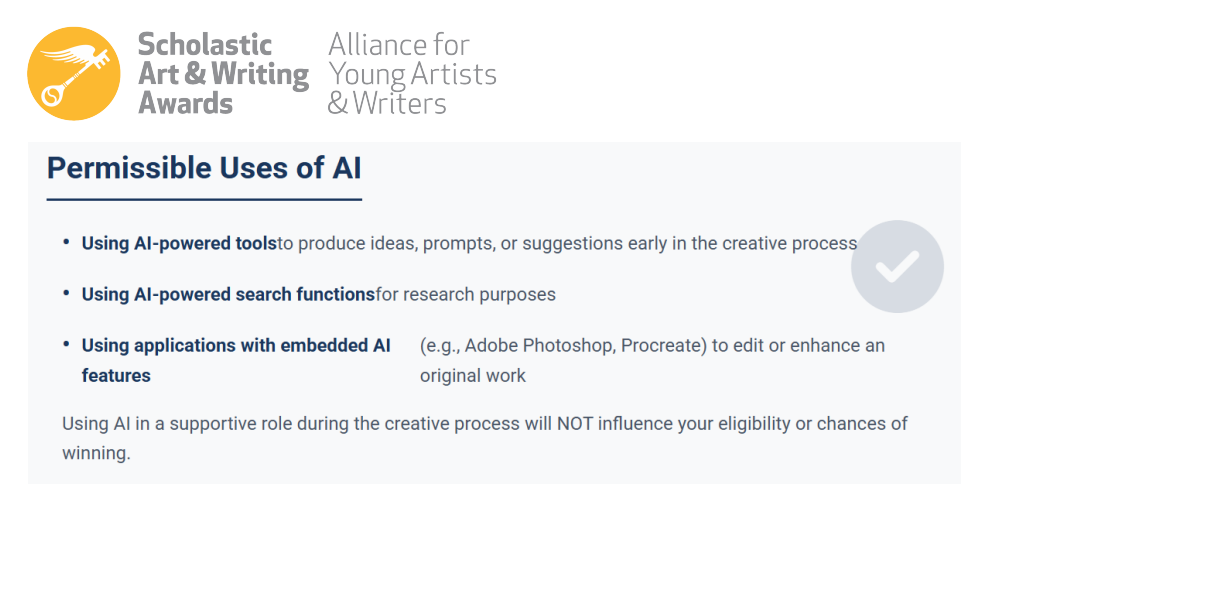
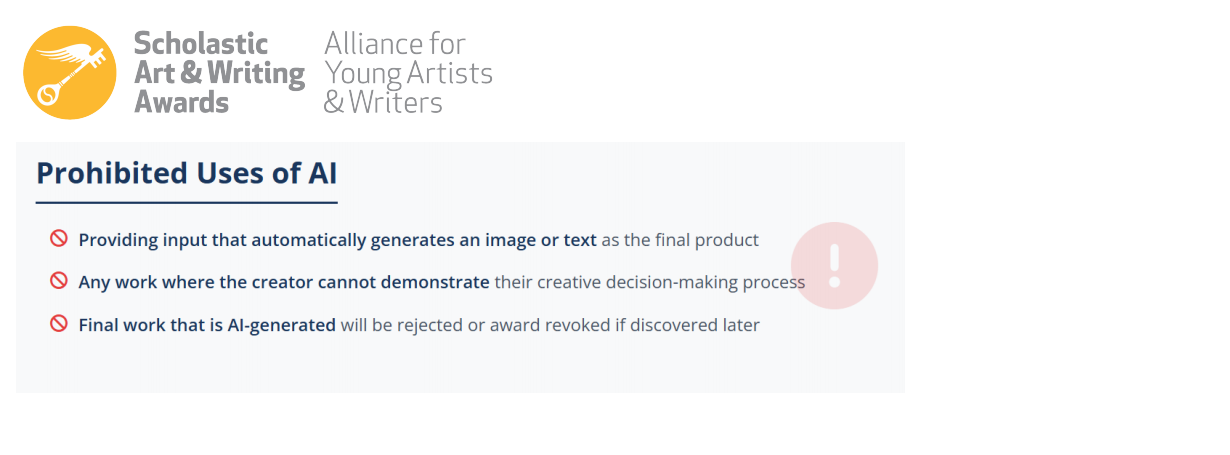
This development is not isolated. Across the admissions landscape, institutions are tightening scrutiny:
- Scholastic Art & Writing Awards now explicitly prohibit final works created by AI. Students may use AI tools for brainstorming or editing (similar to Photoshop in art), but AI-generated output is disqualified.
- Common App warns that detected AI use will be reported to all universities, and violators may be permanently banned from using the platform.
- Some literary competitions apply zero tolerance—even if AI influenced a single line.
- Many high schools now require handwritten in-class essays to prevent AI-aided work.
- Duke University recently announced it will no longer include essays in its numerical rating system, effectively reducing their weight in admissions decisions. Other universities are reportedly considering similar policies.
The message is clear: AI cannot replace authentic student voice.
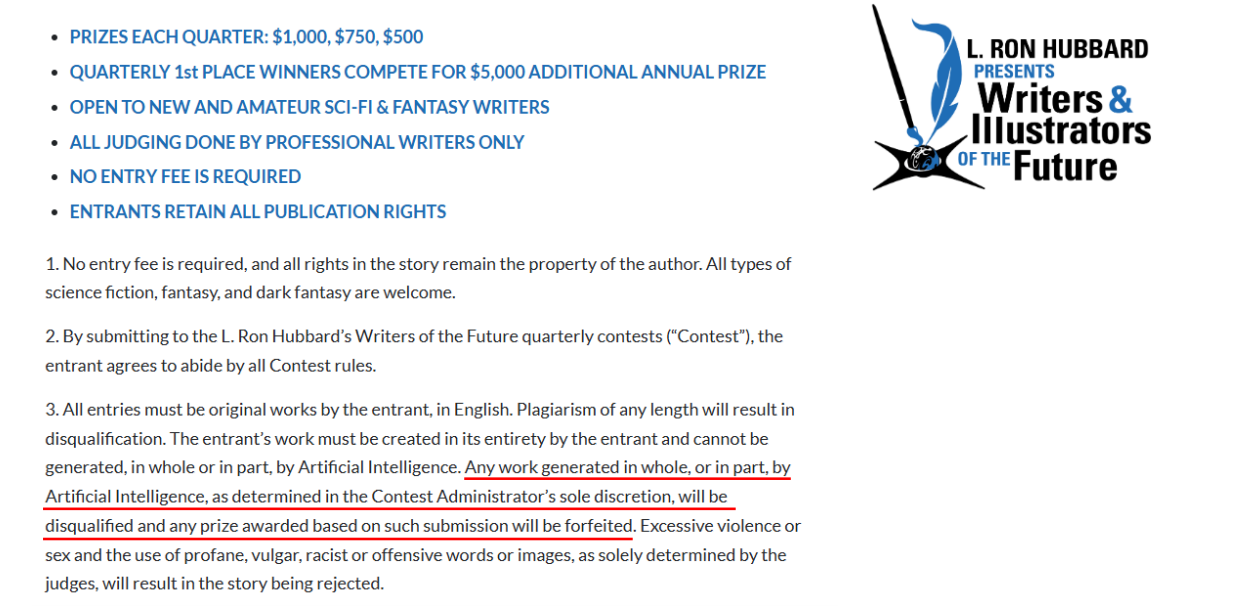
What This Means for Students
- Expect more verification steps like English tests, interviews, or in-class essays.
- AI detectors are becoming increasingly sophisticated—risking bans or disqualification is not worth it.
- A strong essay today is not just about polished language, but about authentic ideas, research, and narrative.
- Competitions and universities alike are shifting focus from perfect writing to demonstrated discipline, character, and originality.
Competitions like the John Locke Essay Competition remain one of the most powerful ways to showcase intellectual depth and secure a standout “Spike” in admissions. But as AI changes the landscape, students must commit to authentic work and be prepared for added verification steps.
For families preparing for U.S. college admissions, my advice is simple: focus less on shortcuts and more on building genuine skills. Authenticity will always prevail.
And if you’re also preparing for the Digital SAT, I recommend ett-test.com, which provides complete solution videos for every test question—resources you won’t find anywhere else.
Thank you for reading, and I look forward to sharing more insights in the next post.
essaycompetition
Jonlockeessay
englishtest